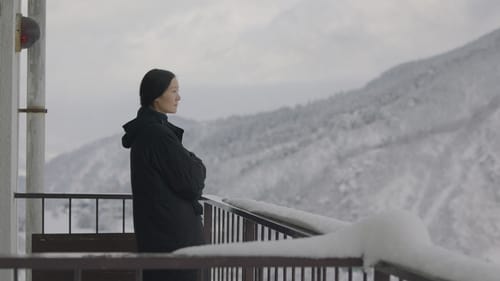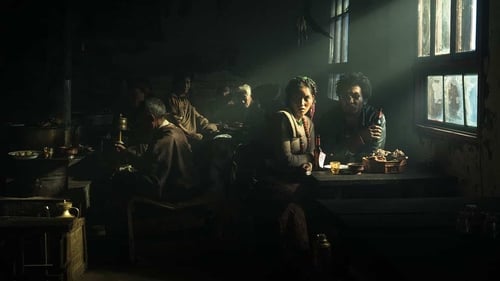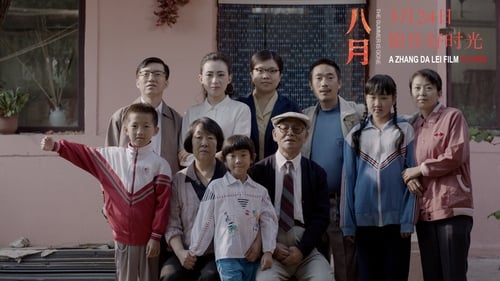
Director of Photography
The story happened in 1990 when Beijing hosted the Asian Games. Zhou was someone who lived a normal life, taking care of her mom. She has a passion for her life, such as watching and donating to the Asian Games instead of buying Jeans. Li Mo was someone who didn't like his parents' arrangement (maybe to work at the factory). He likes writing poems and traveling. Something that was trending in China at that time but not being understood by many others. He had just completed his trip and had to go back to reality. He had that poet look at the beginning but cut it later on to show that he had moved on to his normal life. The two met. They shared some common and trivial things. They can potentially understand each other better and treat each other as friends.

Director of Photography
A commercial commissioned by FIRST film festival and LEXUS company. Sort of sequel to Zhang Dalei's The Summer Is Gone.

Director of Photography
A film director wanders the world alone after breaking up with her boyfriend, finally gaining inner peace.

Director of Photography
«Воздушный шарик» рассказывает о влиянии китайской политики контроля рождаемости на тибетское общество. Даргье и Долкар растят трёх сыновей, ведя на пустынной равнине традиционную размеренную жизнь тибетских скотоводов. Но достижения современного мира вторгаются в их жизнь, принося смех и стыд, страх и отчаяние. Семье всё сложнее сохранять баланс между буддийской верой и сегодняшними реалиями. Каждому придётся сделать выбор — может ли медицина прерывать цикл перерождений бессмертной души?

Director of Photography
На пустынной дороге, расчертившей столь же бескрайние, сколь и бесплодные равнины Тибета, водитель грузовика случайно сбивает овцу, а затем, не менее случайно, встречает молодого человека, который просит его подвезти. По дороге водитель грузовика замечает, что к ноге его нового друга привязан серебряный кинжал ‒ юноша явно хочет убить кого-то, кто некогда был к нему несправедлив. Их недолгое знакомство не только кардинально меняет жизнь водителя, отныне его судьба накрепко сплелась с судьбой загадочного пассажира.

Director of Photography
It’s the rainy season in the Tibetan highlands. It’s good for the crops, but bad for Wangdrak. He’s the only boy in his village who doesn’t own a pair of rain boots – and the other children tease him about it. His father has no money to buy any boots, plus he has other worries: there’s a dispute among the farmers. Secretly, his mother swaps a goat skin for a new pair of light blue boots. But when Wangdrak proudly wears them to school the next day, the children laugh at him again because it has stopped raining and the sun is shining. At least Wangdrak can count on his best friend Lhamo. Set in the vast mountains of Tibet this film affectionately portrays the story of a young boy’s dreams which are bound by the traditional structures of rural life.

Director of Photography
In an deserted Chinese mountainous region, a dead man is found at a hillside.

Director of Photography
In the early 1990s, Xiaolei, who lives in a small village in western China, longs for a summer holiday without homework after he graduated from primary school. However, it is filled with boring routine, and Xiaolei feels the anxiety around him. When his father has left, Xiaolei realises that his life is completely changed.

Director of Photography
Tharlo is an orphan. Now grown up, he makes a living as a sheep herder in the village. He has grown a ponytail, so people simply call him “Ponytail”, since nobody remembers his real name anyway. Tharlo has a remarkable memory. He remembers so many things, except his own name. He is now in his forties, and he has yet to have his first woman. Now Tharlo goes to town to take a photo for his identity card. He meets a girl in the barber’s shop who changes the course of his life. He embarks on the journey to find his true self. He sells all his sheep and those entrusted by other villagers to him for care, and decides to use the money to go out into the world with the girl, only to find himself being deceived and cheated by her. Ironically, in his journey of self-discovery, Tharlo has lost his sense of self. As he witnesses in the mirror his ponytail being cut off and leaving him bald, he can no longer see himself as a man with a history that he recognizes.

Cinematography
The character of this story lives far from the worlds of the material and the spirit. He has built his own subsistence conditions. He often goes to the neighboring villages, although he doesn’t communicate with other people. He collects some waste but doesn’t beg. He prowls about the ruins of deserted villages, as an animal or as a ghost. Under double political and economical pressure, most of people are depriving of their last dignity into a world where it exists a lack of material and spirit. But a human being stays a human being. He is looking for reasons to continue to live. —Wang Bing

Director of Photography
Alus, an electronic musician, takes in his mother, who is suffering from dementia, and they begin to live together in her steppe homeland.









